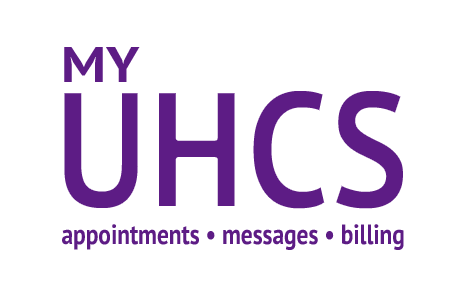Headaches
Wellness Information
-
Wellness Information A-Z
- Alcohol and Other Drugs
- Allergy Information
- Anxiety Information
- Assertiveness
- Back Pain
- Birth Control Methods
- Cold and Flu
- Condoms and Barrier Methods
- Consent
- Dating Violence
- Depression and Sadness
- Eating Disorders
- Emergency Contraception
- Exercise
- Family Concerns
- Fever
- Grief and Loss
- Headaches
- Human Papillomavirus (HPV)
- Immunizations
- International Student Wellness
- LGBT Wellness
- Men's Health
- Mental Health
- Nausea and Vomiting
- Nutrition and Eating Healthfully
- Pap Tests
- Pregnancy
- Psychiatry
- Religion and Spirituality
- Sadness and Depression
- Self Esteem and Confidence
- Sexual and Reproductive Health
- Sexual Assault and Harassment
- Sexually Transmitted Infections
- Skin Care and Tanning
- Sleep
- Staying Healthy
- Stress
- Students of Color
- Suicidal Thoughts
- Test Anxiety
- Time Management
- Tobacco and Cessation Information
- Transitioning to UW-W
- TransHealth
- Travel
- Urinary Symptoms
- Veteran's Wellness
- Weight - What's Best for You?
- Women's Health
- Wellness in Whitewater
- Your Period - What's Normal, What's Not
- Sexual Assault Prevention Training
- Internships and Involvement
- Breastfeeding/Lactation Room
- Wellness Peer Educators
UHCS Services
UHCS provides evaluation and treatment for both acute and chronic headaches. Given that headaches have many causes and confounding factors, UHCS strives to provide more comprehensive treatment for headaches through collaboration between medical health care providers and mental health care providers, as appropriate. UHCS also offers some medications on-site for treatment of acute and chronic headaches.
Overview
There are many causes of headaches. Some acute headaches (those that don't occur regularly) are caused by stress (or tension) or by an illness, like sinus infections or influenza. Headaches caused by an illness will resolve once you've recovered from the condition. Tension headaches can occur more frequently, becoming chronic for some people. Chronic headaches (those that come back on a regular basis) are typically cluster, tension, or migraine headaches. Treatment varies depending on the type of headache.
For acute, mildly to moderately severe headaches, many people get relief from over-the-counter pain relief medications, such as ibuprofen or acetaminophen. These should be taken as directed on the package, unless instructed otherwise by your health care provider. If you are experiencing headaches several times a week or month, you should discuss this with your health care provider, as prophylactic, or preventive, medication or other therapy may help to reduce your headache frequency and improve your quality of life.
** There are other causes for headaches, so if your headache is severe, accompanied by fever, neck stiffness, altered consciousness, or occurred after a head injury, this may be a medical emergency and you should seek immediate evaluation in the emergency room (or call 911). **
Resources
Disclaimer
All information on this website is written by UHCS professional staff unless otherwise noted. No data is collected on visitors to this site. Financial Support for this web site is provided by University Health & Counseling Service, Division of Student Affairs, University of Wisconsin-Whitewater. This web site does not accept advertising.
This site is not meant to replace the advice of a health care or counseling professional. You should not rely on any information on these pages, or information generated for you by this site, to replace consultations with qualified professionals regarding your own specific situation. Some links take you to a source outside of UHCS. The owners of that site, not UHCS, are responsible for the content.



